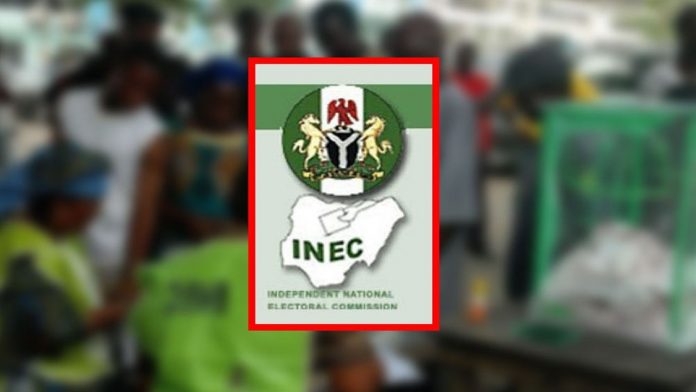The Independent National Electoral Commission (INEC) has stated that the 2023 general election is not encumbered and will hold as planned, beginning with the presidential poll scheduled for February 18, 2023.
Responding to speculations that it might postpone the scheduled conduct of the 2023 general election if President Muhammadu Buhari signs the Electoral Bill after February 22, 2022, INEC’s National Commissioner in charge of Publicity and Chairman of Voter Education, Mr Festus Okoye told THISDAY that the commission was not in any form of dilemma relating to the exercise of its constitutional and legal powers.
Okoye stated that the commission was focused and working proactively to deliver on its mandate.
According to Section 28 (1) of the Electoral Bill 2022, INEC is required to issue a notice of election not later than 360 days before the day appointed for an election.
The Executive Director of Yiaga Africa, Mr Samson Itodo, had reportedly stated that in line with the Electoral Bill 2022, the deadline for the commission to issue the notice of election for the 2023 general election will be February 22, 2022, “the reasons being that the total number of days from February 22, 2022, to February 17, 2023, is 360 days.”
But Okoye told THISDAY that the speculations and anxiety relating to the shifting of the date of the 2023 elections were based on the Electoral Bill 2022 which, according to him, is still inchoate.
According to him, the existing and extant electoral legal framework for the conduct of elections remains the Constitution and the Electoral Act.
He insisted that the electoral body was in synch with the constitutional provisions relating to the period for the holding of elections, adding that the provisions are sacrosanct and cast in stone.
“The commission is only permitted to orbit around the constitutional timelines in fixing the date for the holding of elections.
“The commission is a regulatory body guided by the provisions of the Constitution of the Federal Republic of Nigeria 1999 (as altered), the Electoral Act, 2010 (as amended) and its Rules, Regulations and Guidelines.
“As of today, the existing and extant electoral legal framework for the conduct of elections remains the Constitution and the Electoral Act and the commission will continue to rely on its provisions for electoral continuity, pending any amendment to the said law.
“By the commission’s Regulations and Guidelines made pursuant to the powers conferred on it by the Constitution and the Electoral Act, the 2023 general election will hold on the 18th of February 2023,” Okoye explained.
He argued that the scheduled date is in consonance and in conformity with sections 132(1) and 178(1) of the Constitution of the Federal Republic of Nigeria that gives the commission the exclusive right and power to appoint the date for the holding of Executive and Legislative Elections subject to the timelines and schedule circumscribed in Sections 132(2) and 178(2) of the Constitution.
“By the said sections, election to executive positions shall hold not earlier than December 30, 2022, and not later than April 29, 2023, while legislative elections shall hold not earlier than 10th January 2023 and not later than May 10, 2023.
“By Section 30 of the existing and current Electoral Act, the commission shall give notice of the holding of the elections not later than 90 days to the said election and this remains the law and the commission is in good standing relating to its timelines and schedules,” Okoye added.
The INEC commissioner said that the speculations and anxiety relating to the shifting of the date of the 2023 elections were based on the Electoral Bill 2022 which is still inchoate.
According to him, Section 28 of the said Bill requires the commission to give notice of election not later than 360 days to the said election, stressing that the said 360 days will elapse in the next few days.
He said that the commission was also aware that Section 58 of the Constitution gives the President 30 days to assent to the Bill or withhold his assent.
“The commission is aware that the Bill was transmitted to the President on January 31, 2022. The members of the National Assembly and the Executive are aware of these timelines in the Bill and the implications of the timelines if the Bill is assented to and these are issues that can be adjusted and streamlined.
“The commission desires an expeditious resolution of the issues surrounding the new electoral legal framework as there are creative and innovative issues and provisions in the Bill that will enhance and advance the electoral process and our democracy.
“The commission is focused and will continue with its preparations for the conduct of the 2023 general election. If there are challenges with timelines, the commission will meet, assess those challenges and remain within the constitutional and legal confines in sections 132(2) and 178(2) of the Constitution that requires that elections to executive positions to hold not earlier than December 30, 2022, and not later than April 29, 2023, while legislative elections shall hold not earlier than January 10, 2023, and not later than May 10, 2023,” he explained.













